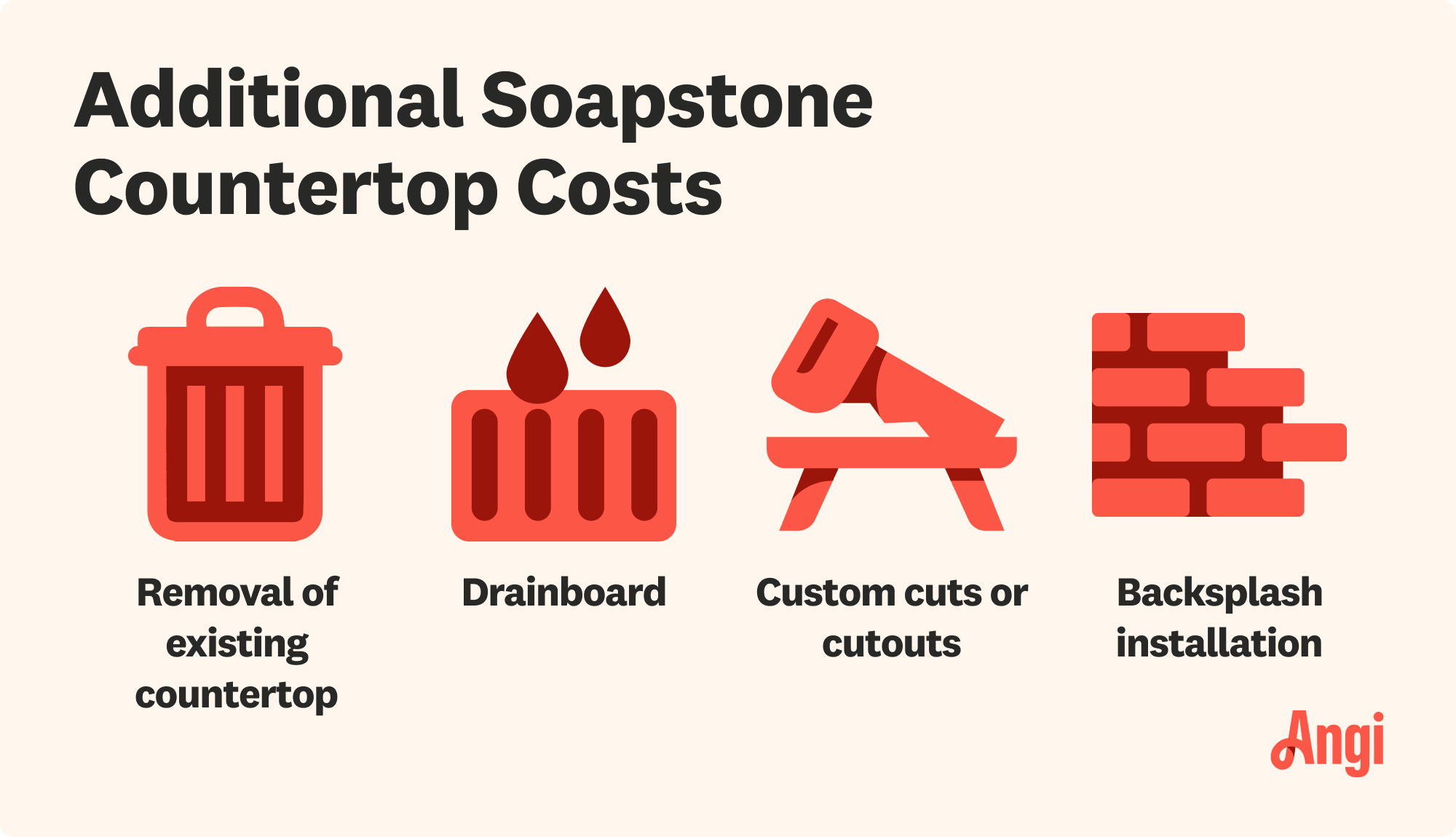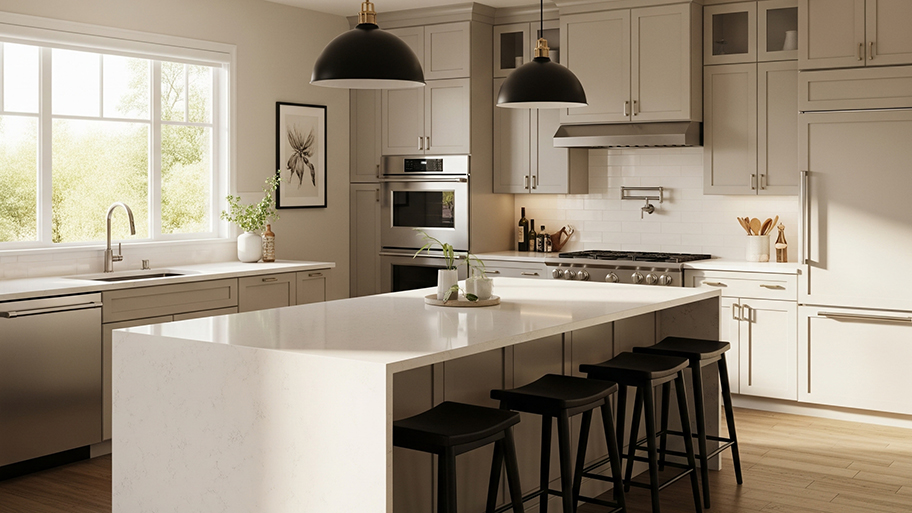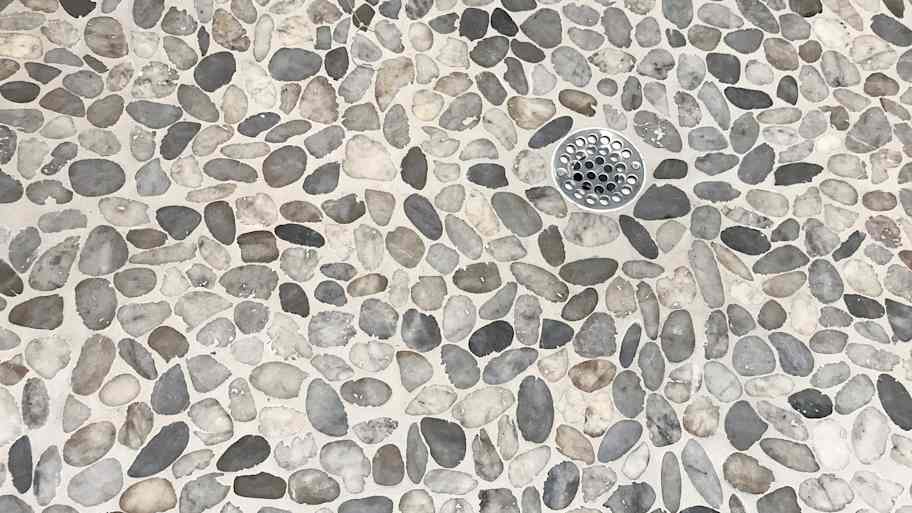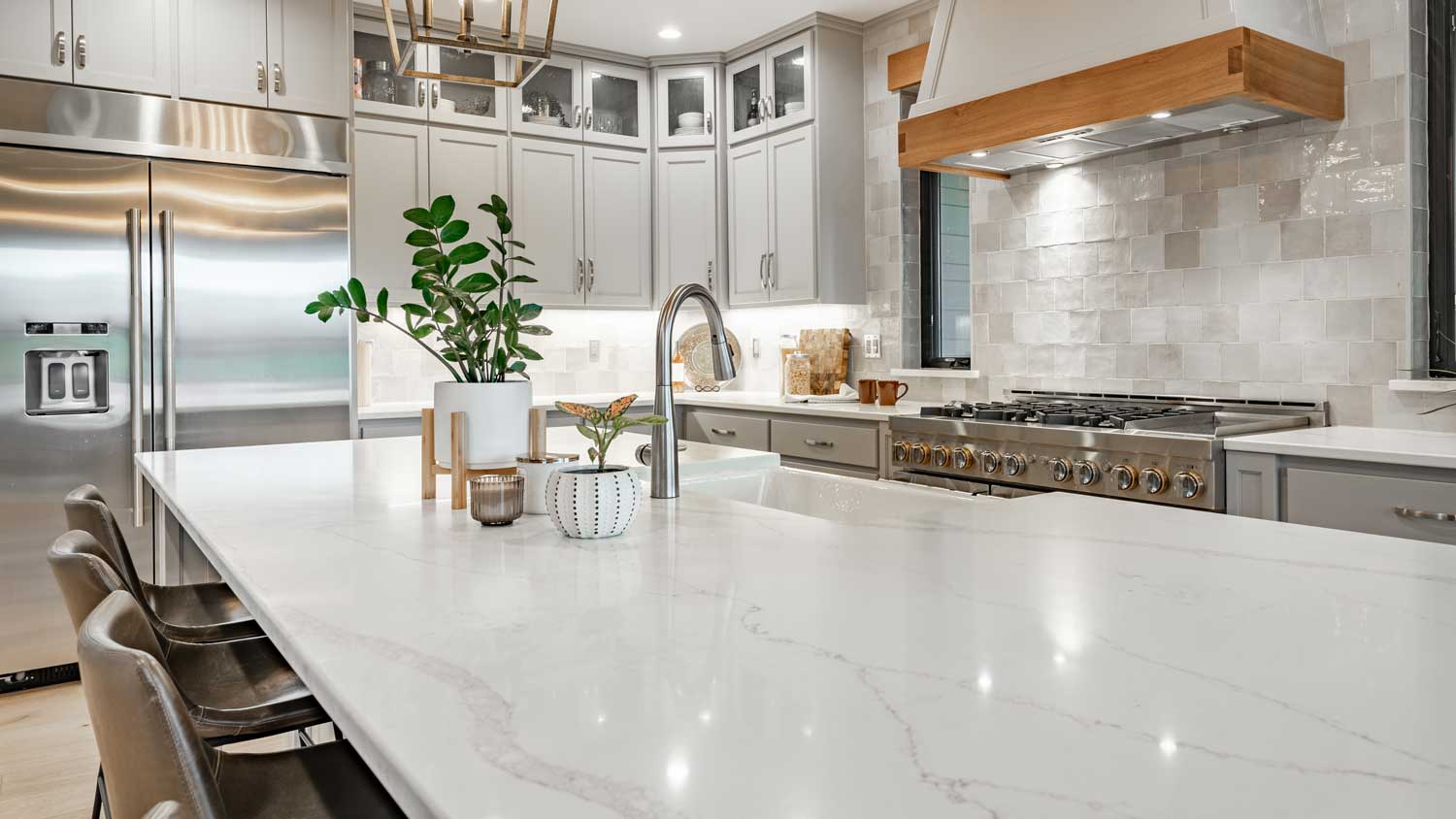
Marble countertops have yet to go out of style, and likely won't any time soon. This strong, durable, and stunning material melds with most kitchen, bathroom, and even dining room designs. But how much do marble countertops cost to install?
Find out if this charcoal-like stone is the right fit for you


Soapstone counters are natural, nonporous, and easy to maintain.
These countertops are costly with limited color choices.
Generally speaking, the pros outweigh the cons for many people.
Soapstone countertops offer a rich, timeless look that can elevate all sorts of kitchen aesthetics. But this material does come with a few drawbacks, which you will want to consider before committing to it for years. Here, we break down all of soapstone’s pros and cons so you can figure out whether these countertops are an ideal fit for your home and lifestyle.
There is a whole lot to love about soapstone countertops.
A lot of natural stones are porous, which means they soak up stains easily—but soapstone is not, despite being natural. This means common kitchen messes will not stain it, so you do not have to worry much if you accidentally knock over your morning coffee or evening cocktail. Plus, soapstone's nonporous composition means that bacteria will not penetrate it, so it is a total breeze to clean.
Being nonporous means soapstone does not require a sealant to maintain its appearance. Many other countertop materials, such as quartz, limestone, and wood, require regular sealing to stand up to tough stains and other messes that typical kitchens see on a daily basis. But if you opt for soapstone countertops, then you never need to think about this protective layer.
Soapstone is a relatively soft stone, typically falling between 2.5 and 3.5 on the Mohs Hardness Scale when used for countertops. And while this softness means it is more susceptible to scratches than many other stones, it is also very easy to carve. So, if you find a countertop slab that you like, you can hire a stone countertop pro near you to carve out matching sinks, soap dishes, and drain boards for an oh-so-stylish kitchen.
Often, you need a trivet to put hot pans down on your countertops to prevent the heat from causing damage. But if you have soapstone countertops in your kitchen, you can transfer pans directly from the stove to the countertop without fear of damaging the surface.
Soapstone is an all-natural stone. It is not mixed with resin and it does not require sealant. Its composition means that no two pieces are exactly alike, so your countertop will truly be one-of-a-kind.
Acidic foods, such as lemons and tomatoes, can damage many types of countertops, but not soapstone. In fact, soapstone countertops do not react to acid at all, so you do not have to worry about a spaghetti spill ruining your beautiful new counter.
Soapstone is an excellent choice if you are looking for an environmentally friendly option. Since it is a naturally occurring stone that is cut into slabs for counters, manufacturers do not use any chemicals to prepare this stone. At most, it is finished for different surface textures.
If you are looking for a high ROI and a material that retains its value, soapstone should be high on your list. The ROI of soapstone counters is anywhere from 50% to 80%, so it is a good option if you are looking to sell your home in the future. These counters also last 20 years or longer, so you will enjoy their value for decades.
This material is softer than marble or granite, making it an easier DIY job. You may be able to tackle soapstone counter installation, as long as you have extra hands to help. You will only need basic tools, including a grinder and a circular saw.

Like all types of countertops, soapstone has a few drawbacks to consider.
Because soapstone is a natural stone, its colors are limited to what Mother Nature dictates. Most soapstone comes in darker hues, like gray and black, though some have blue or green tints. So, if you are hoping to find a specific color to match your kitchen's aesthetic, then you might be better off with an engineered stone countertop, such as quartz, which comes in all kinds of different colors and styles.
Soapstone is softer than many other countertop materials, so it is pretty susceptible to damage. Even sliding a glass vase across it might cause a few scratches. Fortunately, mild damage is easy to fix, usually only requiring a bit of sanding and oiling. Still, if your kitchen sees a lot of activity or you simply cannot stand to look at imperfections, soapstone countertops might not be a good fit for your household.
If you want your soapstone countertop to continue looking dark and rich, you will need to apply mineral oil every few months to maintain its color and prevent fading. Areas that get used a lot will always fade faster than other parts, so your countertop might look a bit uneven between oilings.

Soapstone countertops cost $70 to $120 per square foot installed, which makes them comparable to marble and slate. Depending on the quality of materials, this price range is also comparable to low- and mid-range granite and quartz countertops. This means that soapstone is not the most budget-friendly option.
Soapstone comes in relatively small slabs, so if your kitchen counters are larger than seven square feet, you will probably have some visible seams where the two slabs connect. That said, if installed properly, the seams will not be too noticeable, so it should not be a deal-breaker.
Soapstone countertops get darker over time, which some people may dislike, but others appreciate. You can embrace and quicken the development of this natural patina by applying mineral oil to your counters. The first application should follow installation, and you can oil the surface every month for a year until you get the dark shade you are looking for.
Soapstone has a natural rough texture. If you prefer something more smooth, you can opt for satin or leathered finishes. Unlike other natural stone options, however, you will not have the choice of a high gloss finish.
Soapstone countertop installation costs $10 to $40 per square foot. You might be able to DIY the job, but generally, countertop installation is a complex project that you should pass along to the pros.
Soapstone countertops cost $60 to $80 per square foot for materials and $10 to $40 per square foot for labor. Prices vary depending on the color of the soapstone and edging options. You can also add drainboards for an extra $300 to $550 and soapstone backsplashes for $70 to $120 per square foot.
Installing countertops can be DIY-friendly if you have experience and a few friends to help you carry the slab. This will save you money from labor, but you’ll still have to purchase the materials and all of the required tools. Professionals typically have better sources to obtain materials than consumers, so you’ll likely pay a bit more for the soapstone. As a warning, there are plenty of ways to mess up this job, and mistakes are costly. We recommend contacting a pro over DIY.
Many homeowners appreciate soapstone's smooth, matte appearance. Unlike granite, it is nonporous, which also makes it more hygienic. Plus, unlike luxurious options like marble, it resists stains, so there are no fears if you spill your glass of red wine.
Other stone materials are available in a broader range of colors and textures than soapstone. But if you're looking for a denser stone that does not scratch easily and can withstand heat, soapstone is a fabulous option.
From average costs to expert advice, get all the answers you need to get your job done.

Marble countertops have yet to go out of style, and likely won't any time soon. This strong, durable, and stunning material melds with most kitchen, bathroom, and even dining room designs. But how much do marble countertops cost to install?

Are you getting close to deciding on Caesarstone® countertops for your home? Discover all the details behind Caesarstone® countertop costs in this guide.

New quartz countertops can give any kitchen a facelift. Find out quartz countertop costs, including quartz slab prices and the cost of installation.

Pebble shower floors create a natural aesthetic, but they may not be safe for everyone. Weigh the pros and cons of pebble shower floors while building your shower.

Learn how to seal marble countertops to preserve this porous stone’s integrity. This step-by-step guide covers sealant testing and application.

If you’re preparing to install ceramic or porcelain tile, here are the tile questions you should be asking about the project.